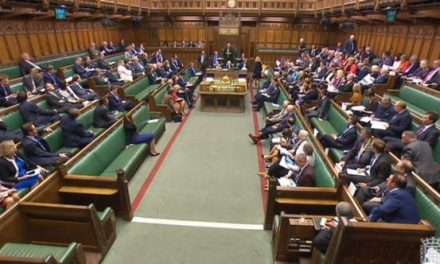With our unchallenged exposure to the eurozone bailouts, Britain is circling the drain and it is only a matter of time before the country is flushed down a financially bottomless eurozone system. The Wall Street Journal reports on an interview with Hans-Werner Sinn, President of Ifo research institute who has said the bailout of Portugal could become a “bottomless pit” for euro-zone states, and the crisis risks spreading to Spain because of local banks’ involvement in Portugal. Britain must not be exposed to this mess under the European Financial Stabilisation Mechanism and the Coalition Government must take action.
It is also an issue that Hans-Werner Sinn says that Germany’s government is likely to lose much of the “several hundreds of billions of euros” it has provided to struggling peripheral euro-zone states through European Union and International Monetary Fund rescue packages, as well as European Central Bank policies. Germany also has constitutional complaints going through the German Constitutional Court on the issue of the EU bailouts – particularly the use of the European Financial Stability Facility and the European Financial Stabilisation Mechanism (the Mechanism being what exposes Britain as a non-eurozone member). In one case, Professor Markus Kerber is arguing that the bailout package is not compatible with the EMU rules, particularly with Article 125. Taking into account that the issues concern interpretation of the Treaty and validity of EU law, it seems that the German Constitutional Court may have no choice but to ask the European Court of Justice for a preliminary ruling on the legal situation underpinning the bailouts.
Moody’s cut Ireland’s sovereign rating by two notches today (which Reuters reports as on “the verge of junk status”) and kept its outlook on negative, adding to renewed pressure on the eurozone’s buckling countries.
What was interesting is that Moody’s said the downgrade to BAA3 from BAA1, or two notches, was partly due to uncertainty around solvency tests required by the European Stabilization Mechanism (ESM).
The Wall Street Journal reports that in Finland, the True Finns party, which opposes further euro-zone bailouts, has seen its poll ratings shoot up, with – according to the TNS Gallup poll for Finnish paper Helsingin Sanomat – 17% of voters backing it, leaving four parties achieving just above or below 20%. It is therefore a primary election issue in Finland and we may see that opposition opposing the bailouts, if they should succeed in getting in.
On Greece, we also hear that German Finance Minister Wolfgang Schaeuble is saying that Greece may need to renegotiate its debt burden. A signal for ‘more help needed’?
In these difficult economic times when Britain is said to be pursuing its own austerity agenda but in reality we are bailing out Greece, Ireland and Portugal, with the Irish economy in further crisis, German citizens bringing forward constitutional legal action against the bailouts and Finland supporting anti-bailout parties in the elections, the Government must wake up and repeal the mechanism which exposes British taxpayers.

